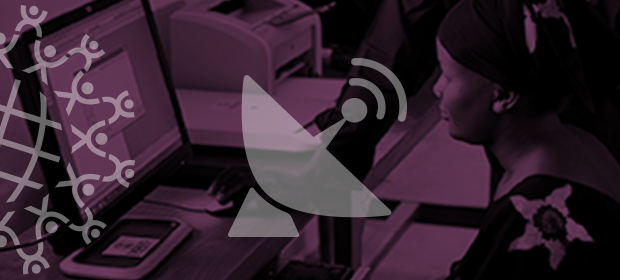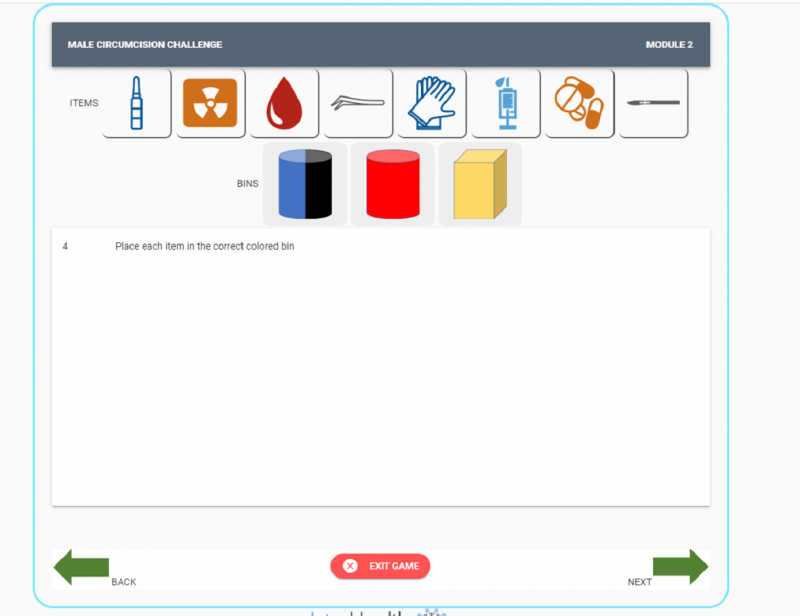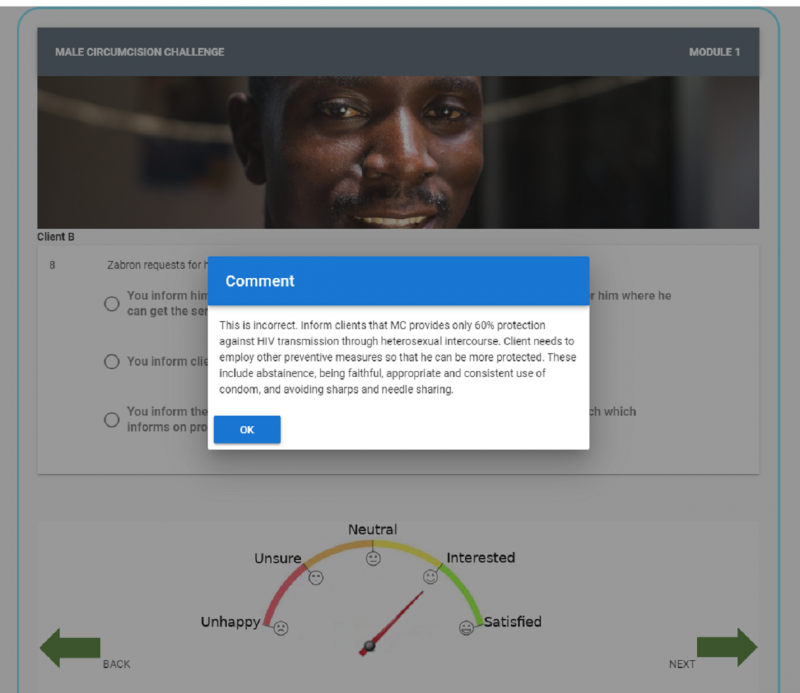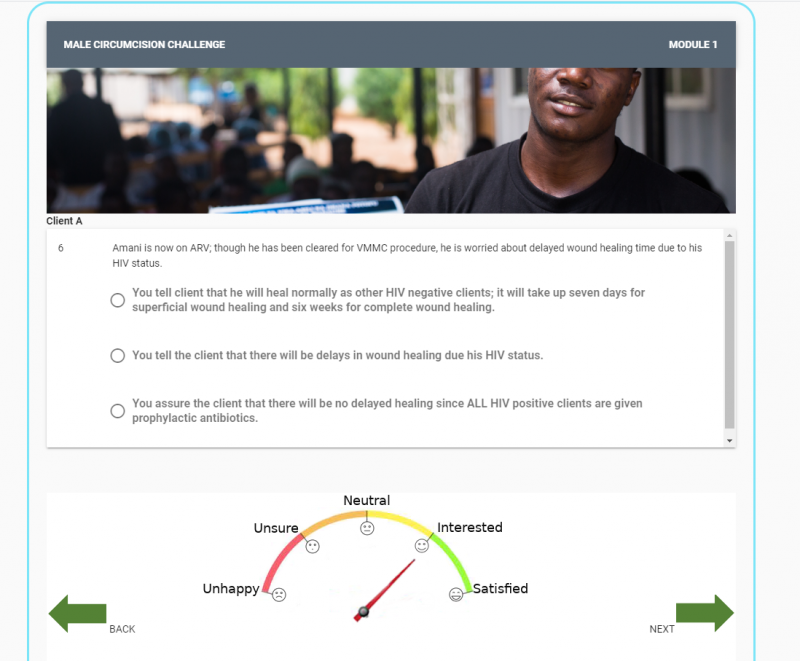Where We Work
See our interactive map


A creative approach in the classroom allows students and teachers alike to see what information they are (and aren’t) retaining.
Around 1.4 million people are living with HIV in Tanzania. While there’s been a 49% decrease in the number of AIDS-related deaths since 2010, the country is still a long way from epidemic control. Training health workers to mitigate the spread of the disease is crucial.
The World Health Organization estimates that we need over 7 million additional skilled health workers to meet just the basic health care needs of the world’s 7.6 billion residents. Countries such as Tanzania are focusing not only on increasing the number of their health workers, but also on maximizing the effectiveness of those they do have.
That’s why IntraHealth International created Tohara Bangua Bongo, a game for health workers in Tanzania who take part in beginner and refresher courses on providing voluntary medical male circumcision (VMMC), which reduces men’s risk of acquiring HIV infection through heterosexual intercourse by around 60%. The course helps health workers update their technical skills and improve patient satisfaction. Trainers use the game to quickly gauge what and how much information their trainees are retaining.
“We created Tohara Bangua Bongo as a way of getting information about health workers’ level of understanding and comfort in some of these aspects while they’re still in the classroom, before they move on to working with actual people,” says Anne Fitzgerald Vinluan, a technical advisor for measurement and learning at IntraHealth.
The game has two 10-minute modules and each one presents a different scenario depending on the user’s stage of training. The first scenario asks the user to counsel three clients (adolescent boys and adult men) to see if they are ready for VMMC. Each client has a different background and a mood meter calculates their interest in the procedure as the health worker responds to their questions.
Then there’s a technical module that simulates the user performing the VMMC surgery and tests how the health worker reacts to determine if they’re ready for the real thing.
The game is a fun way to check what students learned throughout the day.
Tohara Bangua Bongo (Kiswahili for a circumcision game that requires the player to think through each step) is designed to reinforce what the health workers learned during their refresher training, as well as provide an effective way for trainers to see what their students are (and aren’t) retaining. The game produces accurate and immediate aptitude results that act as a barometer for training effectiveness over time, allowing trainers to quickly adapt to their students’ needs.

A snapshot of one of the exercises in Tohara Bangua Bongo.

Feedback for the user after they've answered a question in Tohara Bangua Bongo.

Tohara Bangua Bongo's mood meter, which calculates a client's interest in the procedure as the health worker responds to their questions.
“The game is a fun way to reinforce learning and to check students’ knowledge of what they learned throughout the day,” says Dana Acciavatti, IntraHealth’s senior portfolio manager for digital health. “It’s a little different from taking a quiz. It keeps things fresh and interesting.”
Tohara Bangua Bongo was built entirely in-house by IntraHealth’s digital health team, who worked with our local Tanzania team to conceptualize and code the game. Now, it’s in beta phase and is waiting on approval from the Tanzanian Ministry of Health before it is disseminated throughout the country and scaled up for use in other countries.
Tohara Bangua Bongo was developed under the ToharaPlus project. It is funded by the President’s Emergency Plan for AIDS Relief (PEPFAR) through the Centers for Disease Control and Prevention (CDC). This five-year project (2016 -2021) is in partnership with Tanzania Youth Alliance (TAYOA) and Afya Plus and is currently being implemented in several of the lake zone regions.
Get the latest updates from the blog and eNews




